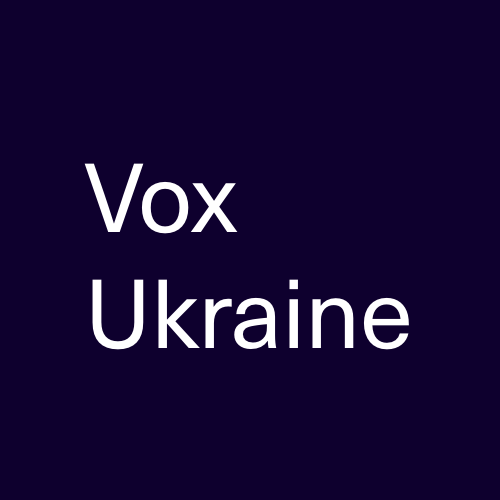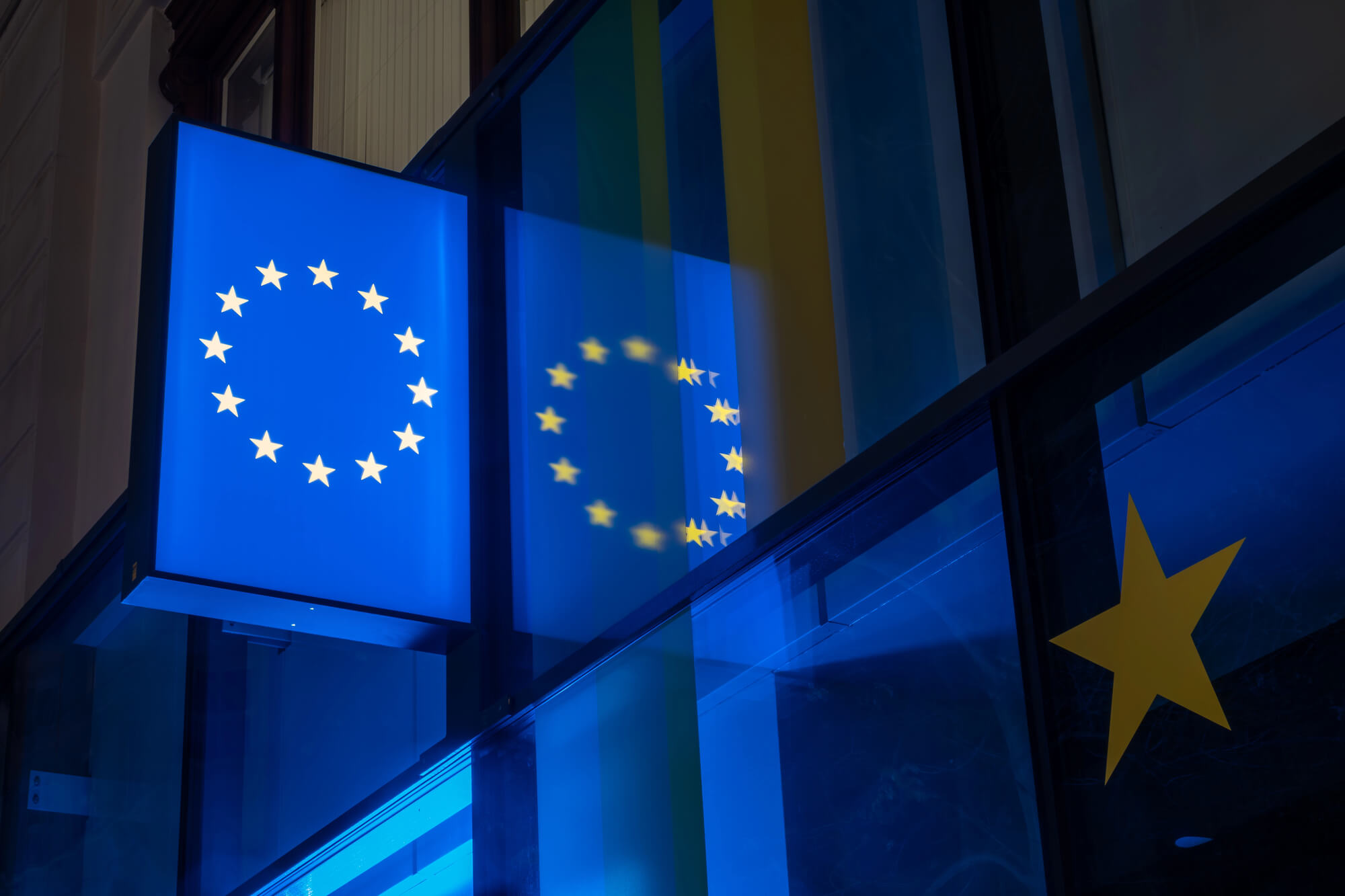Relations with the EU are a topic of manipulation in countries that have already left or are leaving the orbit of Russia’s influence and are moving towards the EU. Some people idealize and promote any relationship with the European Union as a victory. Others view such relationships as a betrayal, where the reality of international relations is seen as a conspiracy. This is happening in Ukraine — but is it the only example?
Within the Russian Language News Exchange project, which brings together journalists from Ziarul de Garda (Moldova), Coda Story (Georgia) and VoxUkraine (Ukraine), we explored narratives and myths about the EU to see if they are common for all of our countries.
Narrative №1. Quotas and the death of trade.
Georgia: Hamlet Chipashvili, political scientist known for conservative views and pro-Kremlin statements (Geworld, 2017)
«Association with the EU is beneficial for Europe as allows the sale of European products to countries like ours, while only allowing a limited sale of our products to Europe».
Ukraine: Vadim Rabinovich, 16/01/2018
«Ukraine used the annual quota for duty-free deliveries of honey, wine and apple juice to the European Union in the first 10 days of 2018. <…> It means that the quota for a huge country is so scanty that it seems to be nothing, just to plug a hole».
Talks about quotas, their unfairness and even damage they deal to country’s economy are ongoing in Ukraine and Georgia.
In Ukraine, for example, such theses were almost the best hit of all the EU-themed mythology. The two main opponents of quotas from the Ukrainian political party were Oleg Lyashko and Vadim Rabinovich.
In Georgia this topic was less popular, but there still were politicians and media who actively promoted it.
In reality, such arguments and narratives against the FTA are absolutely worthless.
Under the Association Agreement, Ukrainian and Georgian manufacturers and entrepreneurs enter the Deep and Comprehensive Free Trade Area (DCFTA), meaning they can access the EU market with zero customs tax. While there is no limit on exporting goods, certain products will be taxed after reaching a certain export quantity. This does not set a limit on the volume of products included, it only specifies the volume of the product that can be imported without any tax.
Is this good or bad? The countries whose exports to the EU are higher than the quotas they received would prefer to have higher quotas or to be able to export all the goods free of duty. However, before the FCTA they either had no quotas at all or the ones that were significantly smaller. Meaning that compared to the period before the FCTA exporters suffered no losses, and some were able to reap the benefits of the agreement.
The EU is trying to protect its market from the influx of too cheap goods from countries with cheaper labor. But this protection does not hurt exporters. For example, for Ukraine the quota for duty-free supplies of honey to the EU is only 7.9 thousand tons, while 57 thousand tons – 80% of all honey produced in Ukraine, is exported to the EU.
In addition, Georgia and Ukraine currently are negotiating the increase of duty-free quotas with European partners.
Narrative №2. Exports to the EU are decreasing
Moldova: Igor Dodon, President of Moldova, 16/01/2017 (16:31 – 16:36)
«We have lost the Russian market and, strangely enough, our exports to the European Union have also decreased».
Georgia: Maia Chitaia, journalist (March, 2019)
«Exports are declining, the quality of Georgian products hasn’t improved. The fact that EU exports have declined and the country [Georgia] still relies on post-Soviet market confirms it».
Ukraine: Vadim Rabinovich 25.07.2018
«Were those losses (loss of the CIS market – ed.) offset by a treaty with Europe, it would be wonderful. But everyone hides the fact that the agreement with the EU cost us $5.8, sorry, $1 billion».
The main narrative spread in all three countries is that after the loss of the Russian market trade with the EU also fell.
Such a theme is often supported by the narrative that Europe simply uses us for trade wars with Russia and is not interested in our markets.
That’s not true:
Moldova: Exports to the EU increased by $195 million over the period of the DCFTA and until 2016 (quoting the beginning of 2017) while exports to Russia fell to $399 million.
Comparing 2013 and 2016, exports to the EU increased 1.17 times (from $1.14 billion to $1.33 billion), while exports to the Russian Federation decreased 2.7 times (from $632 million to $233 million).
Georgia: According to the National Statistics Office of Georgia, the country’s foreign trade has increased since 2014. According to the latest data (January-August 2019), Georgia’s exports to the EU reached $571 million. And although CIS (Commonwealth of Independent States) members remain the largest export market for Georgia (nearly $1.3 billion), exports to the EU in recent years have increased significantly.
Ukraine: In 2013, Ukraine exported $24 billion of goods and services to the Russian Federation, in 2017 — $7.1 billion. That’s $16.9 billion less. The direct replacement of the Russian market by the EU market is impossible, because these markets require different goods. A free trade area with the EU is a potential opportunity to enter the EU market. A number of exporters have already taken advantage of these opportunities.
Exports to the European Union decreased by $6.5 billion (from $48.9 billion in 2013 to $42.4 billion in 2017). But Ukrainian exports overall fell by $28 billion or a third over the period as a result of war, loss of territories and economic crisis.
At the same time, the EU’s share increased from 24.9% in 2013 to 37.1% in 2017, meaning other markets are being substituted by the EU market. Such a reorientation takes time.
Narrative №3. The Association Agreement legalizes same-sex marriage and calls for the promotion of homosexuality
Georgia: Guram Palavandishvili, Member of Morality, an ultra-conservative anti-LGBTQ movement
«If we want the association agreement, we have to adopt the anti-discrimination law. <…> If we abolish the anti-discrimination law, then the consequences of this law, such as same-sex marriage and adoption of kids, among other things, will disappear on their own».
The purpose of the law is not to institute same sex marriage or the adoption of children by same-sex couples in Georgia. The law is designed to ensure equal rights and eliminate all forms of discrimination based on race, skin color, sex, gender identity or religious belief. However, Guram Phalavandishvili and Levan Vasadze, a Georgian businessmen and prominent anti-LGBTQ activist, started collecting signatures this summer to change the part of anti-discrimination law which outlaws discrimination based on gender identity.
We have not found such narratives in Moldova and Ukraine, but that does not mean they don’t exist there. In Ukraine, for example, the issue of sexual orientation and gender is simply avoided on the public level. It is mentioned in extreme cases only — as it was in 2017, when the draft Labor Code failed to include provisions on the prohibition of discrimination based on sexual orientation and gender identity, threatening the visa-free travel. Therefore, the anti-discrimination provisions appeared in the second reading.
Olga Bulat, Marina Gorbatovsky, Mariam Kiparoidze, Katya Patin, Maxim Eristavi, Maksym Skubenko, Yulia Zhaga worked on the project with the support of the Russian Language News Exchange.



